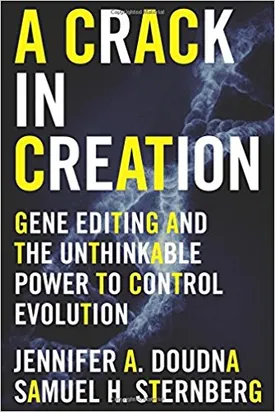Jennifer A. Doudna
Jennifer A. Doudna is an American biochemist and geneticist whose research in CRISPR-Cas gene editing technology has significantly advanced the field of genetic engineering and genomics. She is an award-winning researcher who is credited with making a revolutionary breakthrough that could lead to cures for a wide range of diseases.
Jennifer Doudna was born in Washington D.C. on February 28, 1964. She went on to attend Pomona College in California where she received a bachelor’s degree in biochemistry in 1985. From there, she went to Harvard University to pursue her doctoral degree in biochemistry. Notably, while at Harvard, she was part of a prestigious research group led by the Nobel Prize-winning biochemist, Gerald V. Fink.
In 1991, she received her PhD in Biochemistry and Molecular Biology from Harvard and went on to do post-doctoral work at the University of Colorado and Yale. After three years of post-doctoral work, she joined the faculty of the University of California at Berkeley.
As a faculty member, she continued to focus on bacterial immunity, particularly in understanding how bacteria use adaptive immunity to protect themselves from viruses and other pathogens. A key part of her research was examining a bacterial immune system called CRISPR-Cas. This system, she realized, could be used as a powerful tool to edit genes.
In 2012, Doudna and her colleagues published a paper introducing the world to the CRISPR-Cas gene editing technology and proposed principles for its potential use. This marked a major breakthrough as it showed that gene editing could be done beyond the lab and potentially used to treat and cure a wide range of diseases.
Since then, Dr. Doudna has continued to devote her research to understanding and better developing CRISPR-Cas gene editing. Furthermore, she has extended her research interests to include microbial-based therapies, anti-cancer research and and protein engineering.
Dr. Doudna’s work has been recognized numerous times, including the Nobel Prize in Chemistry, which she received in 2020 for “her role in developing CRISPR-Cas gene editing technology.” In addition, she has received various honors including the Breakthrough Prize in Life Sciences, the Japan Prize, the Albany Medical Center Prize in Medicine and Biomedical Research, and the Kavli Prize in Nanoscience.
Dr. Doudna has also co-authored several books, including A Crack in Creation: Gene Editing and the Unthinkable Power to Control Evolution, edited by The CRISPR Revolution: Gene Editing and the New Horizon of Genetics and Changing the World Through Genetic Engineering. In these books, she explains the potential for CRISPR-Cas technology to revolutionize the field of genetics and the implications of gene editing for humanity.

